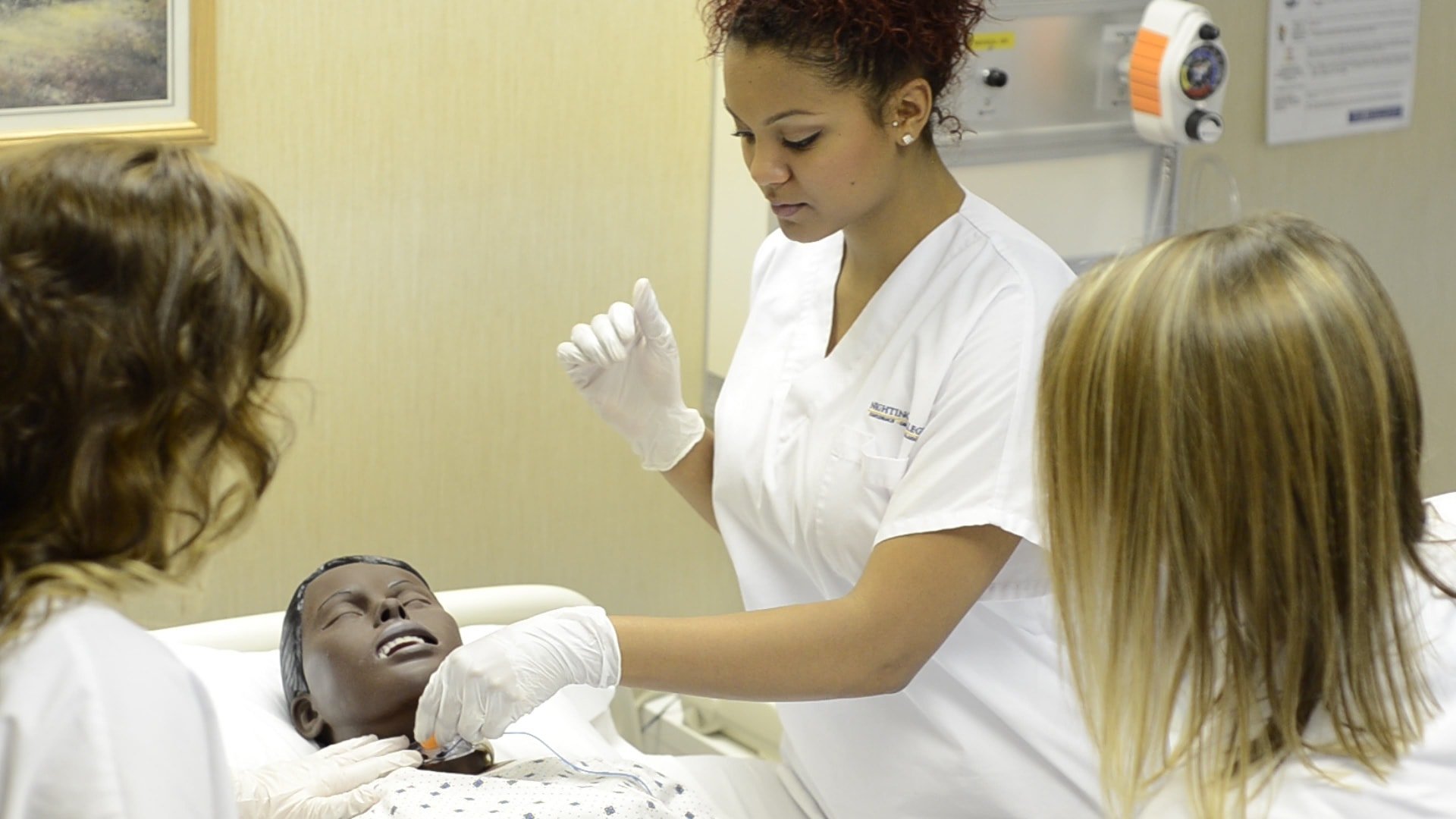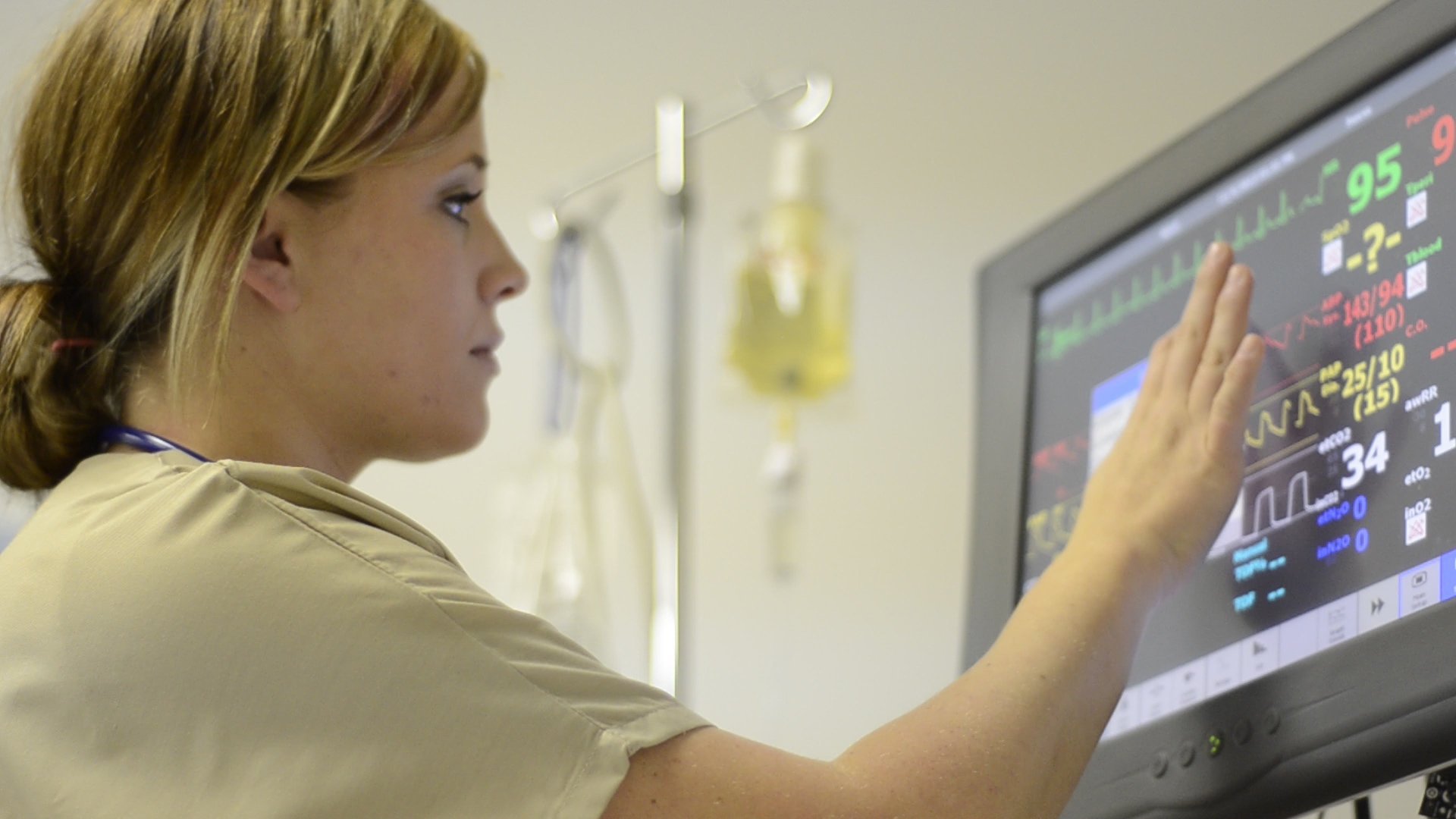Getting Your BSN: Between Online, On-Campus and Hybrid Programs, What Is the Right Option For You?

With the nursing landscape changing so quickly and medical facilities looking for more BSN-prepared nurses, it has become imperative to remain on top of the game if you want to pursue this competitive path or advance your nursing career as an RN.
From mastering your skills and providing the best patient care to gaining in-depth knowledge and experience needed for more complex and better-paying roles, it is natural to look for the fastest and easiest way to get your bachelor’s degree.
With the growing number of online study options, what is the best choice for your career in nursing? Can you get your BSN degree online? Or is it better to stick to the traditional way of learning at a brick-and-mortar learning facility?
This guide explores the options you have, from online, on-campus and blended BSN programs and who are they the best fit for. We’ll talk about the advantages of each delivery model and hope this will come in handy for all those pondering over which educational path to follow.
Why Choose a Bachelor’s Degree in Nursing?
One of the main reasons so many nurses opt for a BSN degree is because it is expected that the BSN to become a mandatory qualification in the field, even for entry-level RN positions.
At the same time, the Institute of Medicine called for increasing the number of BSN-prepared nurses in the workforce to 80% by 2020. This is why getting this bachelor’s degree is an ideal path for any future nurse professional.
But there are many more advantages to earning a BSN. Given the in-depth training and extensive set of skills developed, you can improve patient care in complex health care settings as well as have a higher salary, qualify for specific RN positions like flight nursing, plus take up leadership roles in management, administration or education.
Find out more about getting your BSN degree to advance your nursing career!

What Type of Program is Best for You?
To get your BSN, there are basically three situations you might find yourself in – and for each, recommended programs.
-
Getting a BSN without RN Licensure? An on Campus Bsn Program Will Be Best
A traditional campus-based program is best suited for learners starting their nursing training from scratch.
This is because they will have to dedicate all their study time to academic coursework and learning clinical skills in more interactive settings than online programs require. Learners are continuously guided by professors and become an active part of student communities.
Usually, on-campus BSN is the ideal option for aspiring nurses who don’t have to divide time with other important responsibilities such as work or family.
-
Making a Career Change Towards Nursing? An Accelerated BSN Program Is the Most Popular Choice
Transitioning from a non-nursing field can be difficult, but it has its advantages.
There may be skills, work experience and knowledge you gained that are valuable in your nursing program, not to mention you’d already be familiar with academic studies and its requirements.
An online accelerated or a blended distance program are the best choices if you hold a bachelor’s degree and they allow you to make time for work as well, if you have a job. You can complete a blended distance BSN program in an accelerated timeline if you hold a certain number of transfer credits.
-
RN Looking to Climb up Your Nursing Career? An Online RN-to-BSN program
This high-intensity program takes one to two years to complete and is dedicated to those who are already RNs and want to further their education and raise their chances of landing a better-paid job or having a specialized role in health care.
Learn more about how being a BSN-prepared nurse can accelerate your career in 2019!
As you can see, only an aspiring nurse should go for an on-campus program education that takes them through all phases of the classic college experience: a lot of academic study, in-class interactive experiences with other learners, adapting to the community and working their life around the BSN program.
If you’re already working as an RN, or making a career change towards nursing, both online and on-campus are options you can take and get to the same results.
Of course, online or distance learning options are more flexible and career-friendly, since you don’t have to be online at the same time as other learners, and you’re not limited by geographic boundaries.
Moreover, such programs allow you to juggle work or family time and learn real-world experiences with the help of technology – which reflects today’s world.
Who Should Choose an Online or Hybrid BSN Program?
First, you must know that getting your BSN fully online is not possible – most online programs have an offline component that requires you to complete a lab in order to get the much-needed experience.
There are several types of learners who may find these online or blended-distance nursing programs ideal, mainly because of the flexible schedule the programs offer:
-
- Working professionals: In order to manage your work-life balance the smart way, the blended-distance format BSN program offers you a convenient and flexible schedule that you can organize around your job.
- Parents: You can be both a parent and a BSN learner at the same time, thanks to the flexibility the program offers. This means you can manage your own time and at your own pace. You can read more about being a busy parent and a nursing student.
- Learners who don’t have access to on-campus facilities in their area: If you want to get your bachelor’s degree, you can pursue online classes and get your hands-on training locally, in your community.
- Working RNs: If you are a nurse professional looking to further your education the fastest way without sacrificing your knowledge or taking any time off from work, an online RN-to-BSN program is the best alternative.
- People with a bachelor’s degree in a non-nursing field: You can pursue a blended-distance BSN program if you have no prior nursing experience, but have a degree in another field.
If you find yourself in one of these scenarios above, then consider choosing an online or a blended-distance BSN program that suits your needs and career goals. Keep in mind that a BSN degree program is intense and you must meet all the deadlines it requires while having a very disciplined schedule.
If you want to have face-to-face time with instructors and the campus environment, an on-campus program may be the right choice for you.
Although nursing is a profession that requires hands-on experience, there are more and more accredited programs that offer online nursing core courses, interactive training, use of relevant technology, and on-ground learning at local clinics or hospitals.

These programs are generally classified as blended distance, but it’s best to keep in mind that this still implies a minimum level of on-ground activity (for practical experience).
Unlike traditional on-campus programs, blended-distance programs offer an intense, but much more flexible didactic coursework, as well as interactive modules and experiential learning activities close to home or in your community.
We, at Nightingale, created blended distance BSN programs that take the best of both worlds: you can follow a fast-track degree that offers a disciplined, but flexible schedule to study in the evenings or on weekends, and also hands-on job experience adapted to modern healthcare settings.
Discover everything you need to know about the blended-distance BSN Program at Nightingale!
What Are the Differences Between Online, Blended and On-Campus BSN Programs?
Investing in your education means exploring all the advantages and differences between potential programs and decide which one suits your study time, needs and career goals best.
Let’s take a more in-depth look into the BSN programs and the online versus on-campus debate. Here are the most common questions nurses have when deciding between online and on-campus:
1. Coursework Quality: Are There Differences Between What Online BSN program Teach You vs On-Campus Programs?
The coursework is not different from one another, given the fact that all BSN-prepared nurses need the same set of advanced skills, knowledge and experiential learning activities, no matter their chosen educational path.
There are no significant differences between online and on-campus coursework when it comes to pursuing a bachelor’s degree in nursing. BSN programs offer a broader, more well-rounded sense of nursing through well-thought courses and practical experiences, going deeper into concepts learned in an ADN program while learning new ones that focus on diverse roles in modern healthcare.
For both types of programs, you will take various courses in different fields that will also offer increased knowledge required for leadership and management positions.
Employers and hospitals do not discriminate towards getting your BSN online or on-campus – your skills and knowledge are all that matters.
Although there are specific guidelines regarding the nursing program curriculum from school to school, here are some of the main subjects of the BSN program curriculum, regardless of whether they are taken online or at a traditional brick-and-mortar learning facility:
- Adult, Pediatric, and Geriatric Nursing
- Anatomy
- Basic Pharmacology
- Chemistry
- Emergency Care
- Microbiology
- Nursing Assessment
- Nursing Research
- Nursing Theory
- Nutrition and Diet
- Physiology
- Psychology
- Public health
- Statistics
At Nightingale, during a blended-distance format BSN Program or a fully online RN-to-BSN Program, you also gain:
- A deeper understanding of public health, social sciences, management and communication courses;
- Leadership training that helps you to land administrative, research or teaching positions, if you are interested in them;
- Advanced understanding of nursing theory and nursing informatics to know how to use new technology at your job; and
- Valuable insights for a better understanding of complex issues affecting both patients and the healthcare environment.
One of the most important aspects of the curriculum is that you also gain applicable and valuable decision-making, leadership and critical thinking skills necessary to advance to management or leadership positions in today’s challenging and ever-changing medical environment.
Discover what you will learn in an RN-to-BSN program at Nightingale!

2. Time to Get Your Degree: How Long Does It Take to Get a BSN Online versus On-Campus?
On average, you can complete a BSN program in four years, while an online RN-to-BSN program takes up to two years to complete (full-time enrollment). Usually, the length of a bachelor’s program does not differ whether it’s online, a blended-distance or on-campus.
One important difference here, though, is that an online (including hybrid) nursing program allows you to finish it more quickly than a traditional one, if you are willing to put extra effort and time in your studies.
If you enroll in the blended distance BSN program, you can apply for advanced placement to transfer your credits, and complete it on an accelerated timeline.
Here are the main options available if you’re considering earning a BSN online:
- The blended-distance BSN Program at Nightingale College is a great option for people with no prior experience. Although most of pre-licensure BSN programs are on campus, Nightingale’s BSN Program is a hybrid. Its blended-distance format allows you to engage in online didactic instruction with on-ground experiential learning at local facilities in your community. You can graduate in as few as 32 months or 8 semesters.
- A blended-distance BSN Program with an accelerated timeline at Nightingale College is dedicated to learners who hold transfer credits for advanced placement and are able to study at an accelerated pace. This option is also available to LPN and METC graduates.
- An online RN-to-BSN program is dedicated to RNs who want to advance their skills to a BSN level without taking time off from other responsibilities. At Nightingale, the RN-to-BSN Program is dedicated to working RNs. The time needed to graduate is 12 months or 3 semesters, if the required prerequisite courses have not been completed.
- An online RN-to-BSN program with an accelerated timeline at Nightingale College is also dedicated to working RNs who meet all GE requirements and, thus, are enrolled through advanced placement and can juggle both their job and studying time. If that’s the case, you can complete it in just 8 months or 2 semesters.
For working RNs interested in getting a BSN degree, Nightingale College offers the RN-to-BSN Program that has 3 start dates per year for enrollment: the Spring, Summer and Fall semesters.
Learn more about how a BSN degree will make you earn more and be a better nurse

3. Costs: Are Online BSN More Affordable Than On-Campus Programs?
When it comes to a post-secondary degree, affordable tuition is the most important decision-making aspect for a prospective learner, for obvious reasons. Colleges are expensive in general and you have to make sure your budget is well invested.
Of course, costs vary from school to school, and you need to evaluate all the criteria for each educational path in order to decide. But overall, online nursing programs are indeed more affordable, besides being more accessible and flexible than on-campus programs. These are important reasons many people choose to go online and get the best of their nursing careers.
Let’s take, for example, the most common fees and expenses for a prospecting learner: tuition fees, transportation, housing, food:
-
- Tuition fees are more expensive in a traditional program because they usually include more fees (for campus security, course materials, recreation, sports, student organizations). Studying for online and hybrid BSN programs from the comfort of your home means you don’t have to pay for electricity fees or classroom costs. You may pay for technology used and for personal Internet connection.
- Transportation: there are no transportation costs (bus tickets, fuel, parking) to and from college, during an online BSN program.
- Housing and food: learners who live on campus may have to pay for housing and meal plans. Of course, online nursing learners usually pay for their housing and food, but these are not additional expenses.
The tuition for the BSN Program at Nightingale is $525 per semester credit, and an application fee of $150. You can learn more about the BSN Program tuition fees, scholarships and financial aid here.
Nightingale also offers you a cost-friendly RN-to-BSN Program that requires $400 per semester credit, an application fee of $150 (which includes all digital textbooks) and various financial solutions.

4. Experience: Will You Get to Interact with Your Peers the Same Way in an Online vs On-campus Program?
Of course, another factor to consider is the experiences you get to enjoy and learn from, during the BSN program. Here are some differences between the online and traditional college experience when it comes to earning your bachelor’s degree in nursing:
Intense training for modern healthcare: Due to the growing demand for BSN-prepared nurses and rigorous academic standards, online and blended-distance programs focus on the same valuable classes and interactive modules and experiential learning as classic programs, that will teach you how to act and make the right decisions in challenging settings. Like any good accredited on-campus program, an accredited online or hybrid nursing BSN focuses on providing applicable and relevant coursework needed for career mobility and the chance to be a leader, without deviating from academic standards.
Interaction with professors: during an on-campus program, you will be under the professors’ constant attention and guidance, since you’ll physically participate in their classes, which can help you especially if you prefer visual contact. In comparison, there will be little face-to-face interaction with an online or hybrid BSN program. However, the online environment allows you to access and review their lectures, assignments, and comments and you can ask them questions anytime you need.
Interaction with colleagues: On-campus learners have constant peer interaction and participate in various activities in their community or student clubs, which is great for the classic on-campus experience, especially for fresh learners; but hybrid programs also offer valuable time learning and working alongside other learners during their clinical hours settings, which may prove great for networking, communication and project management skills. Fortunately, many online programs offer alternatives for connecting with other learners or professionals close to you.
Flexible schedule with asynchronous classes: If you are looking for a quicker, fast track BSN, an online or a blended-distance program helps you complete coursework at your own pace and on your schedule, depending on job or parenting responsibilities. Just keep in mind it demands hard work and strong discipline. In comparison, on-campus programs imply a fixed study schedule that must be followed accordingly by all learners taking the same classes.

So, What is Better for You: Online BSN or an On-Campus Program?
The answer to this question is entirely up to you. No matter what program you choose, you will still get the best skills and competencies to advance an amazing and passionate career in nursing.
All that matters when choosing the best option for you is how fast you want to advance to a more secure, better paid and maybe a more rewarding role in healthcare. It also matters how much time, effort and commitment you can put into completing a BSN degree that will make a difference in your career.
At Nightingale’s College, you have no waitlist and you are able to learn through online modules for lectures accessible on any computer, tablet, or mobile phone. This means you don’t have to travel to a location for your classes as an on-campus program would require from you.

